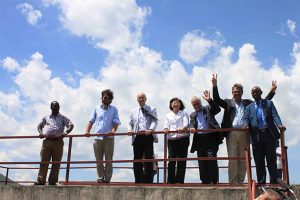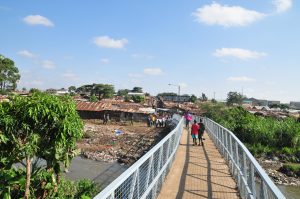AICS is committed to accelerating the urban and infrastructural development of the country through a multisectoral strategy that involves various areas such as education, health, water, and waste management, focusing on the most disadvantaged peri-urban areas and informal settlements. One of the key initiatives was the Kenya Italy Debt for Development Programme (KIDDP), concluded in 2022, which aimed to convert part of the debt contracted by the Government of Kenya towards the Italian Government into development projects, for a total amount of over 43 million euros.
Among the main ongoing initiatives is the Kenya Informal Settlements Regeneration Programme (KISRP), that adopts the design and management approach established through the KIDDP debt conversion program, aiming to improve connectivity and access to basic services in the informal settlements of Awelo (Siaya County), Kalolo Kibaoni and Bayamagonzi (Kilifi County), and Mathare (Kajiado County). The three main areas of intervention are: i) organizing the communities of residents in three informal settlements; ii) surveying and formalizing the land on which the settlements are located; and iii) upgrading and constructing infrastructure to improve road connectivity and access to services for citizens.


